Reid-Vanas is a clinical therapist at, and founder of, Rocky Mountain Counseling Collective.
New research by Rocky Mountain Counseling Collective reveals that American voters are already experiencing more election anxiety in 2024 than they did on Election Day 2020 (typically the day of highest election anxiety). The findings come from analyzing the Household Pulse Survey, a collaboration between the Census Bureau and federal agencies.
At the height of the 2020 election, just over half (51 percent) of surveyed Americans reported experiencing anxiety.
By mid-summer 2024, 54.5 percent of respondents reported feeling anxious for several days or more. And, as the November 2024 election approaches, Americans are becoming even more anxious.
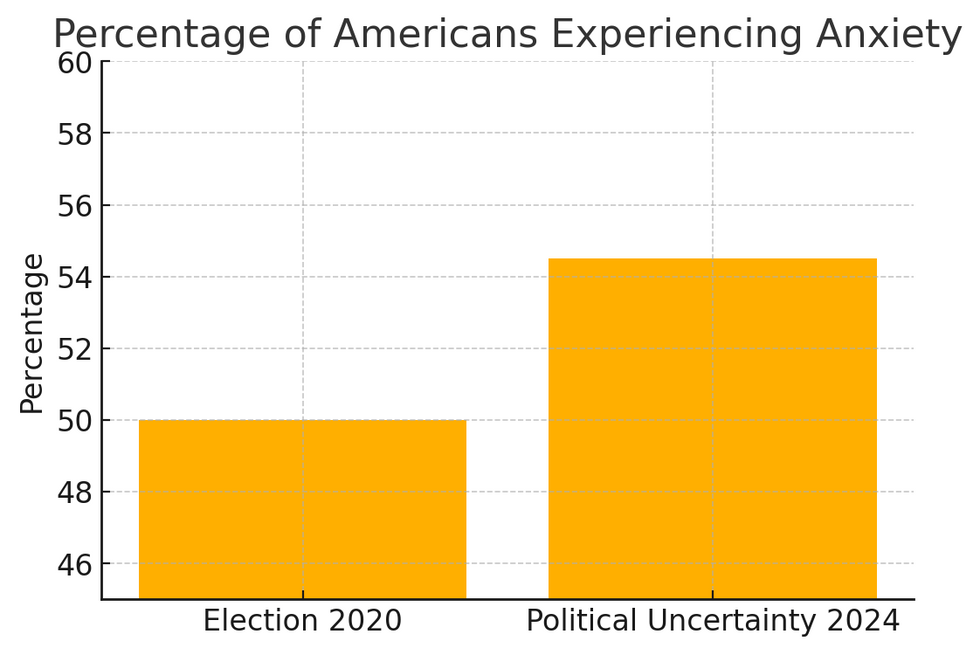
But not everyone experiences election stressors equally. The trick to avoiding election anxiety appears to be held by octogenarians:
- Respondents aged 80 and above reported the lowest frequency of anxiety in both 2020 and 2024, by a significant margin.
- In 2024, people aged 18 to 29 reported the highest frequency of anxiety, whereas in 2020, it was those aged 30 to 39. This suggests a generational shift, with younger individuals now reporting more anxiety than their older counterparts. This shift may reflect a broader acceptance of anxiety as a condition, particularly among younger people who are more comfortable with self-reporting.
- In 2020, men reported lower levels of anxiety compared to women, but by the summer of 2024 this trend had reversed, with men reporting higher anxiety levels.
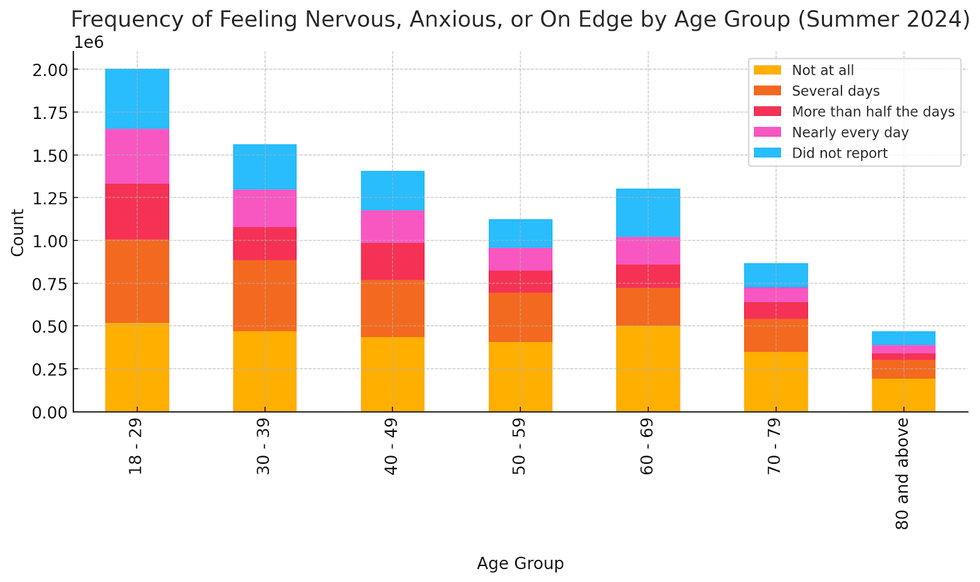
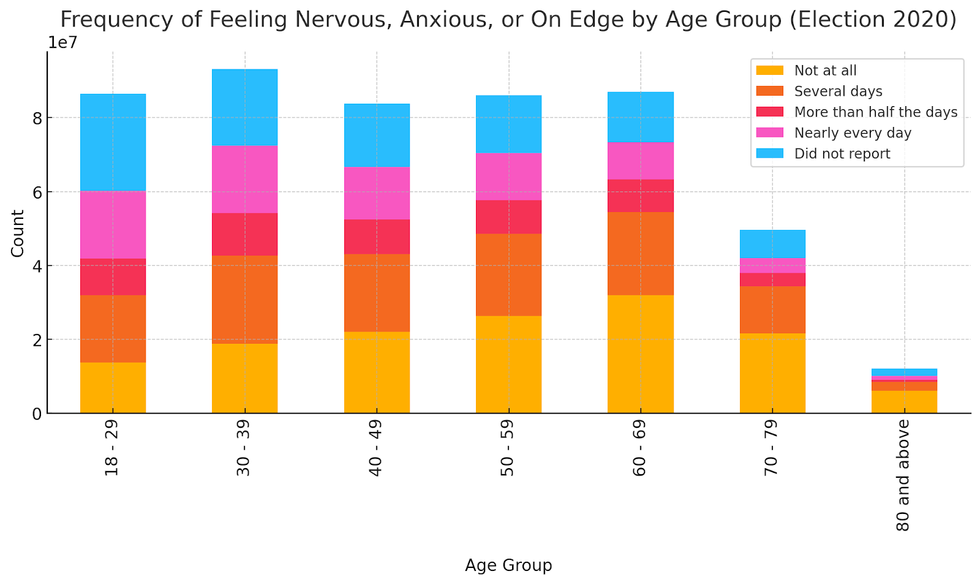
The public’s response to the events in 2020 and 2024 is evident in the keywords they searched on Google. Using Google Trends, which tracks the frequency of search terms over specific time periods, we observe that “election anxiety” has peaked over the summer.
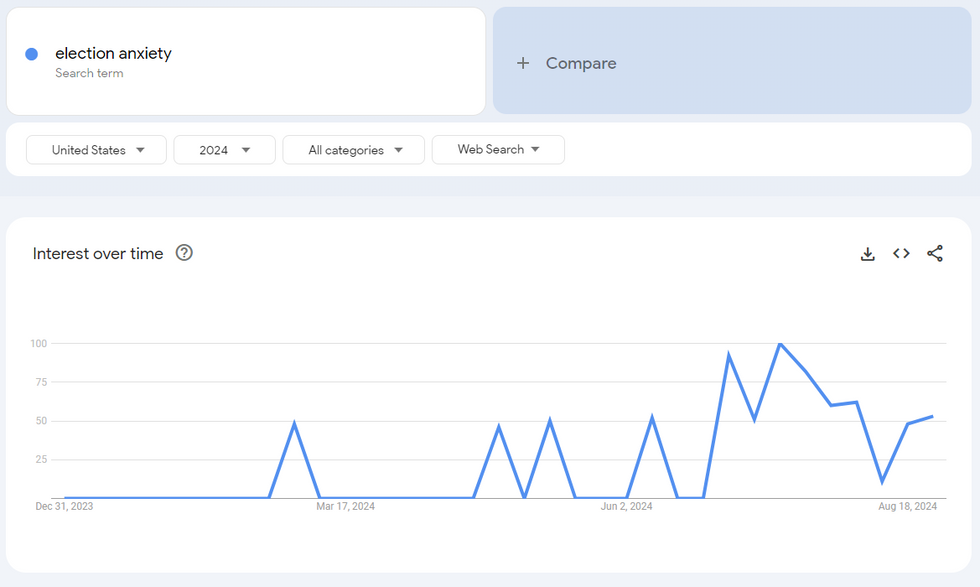
The peaks occurred July 14-20, shortly after George Clooney's op-ed in The New York Times, which called for President Joe Biden to withdraw from the race, and coincided with the first Trump assassination attempt, culminating in Biden's withdrawal on July 21.
In contrast, in 2020, searches for “election anxiety” began on Oct. 25, peaked between Nov. 1-7, and declined by Nov. 15. Election Day was Nov. 3, 2020:
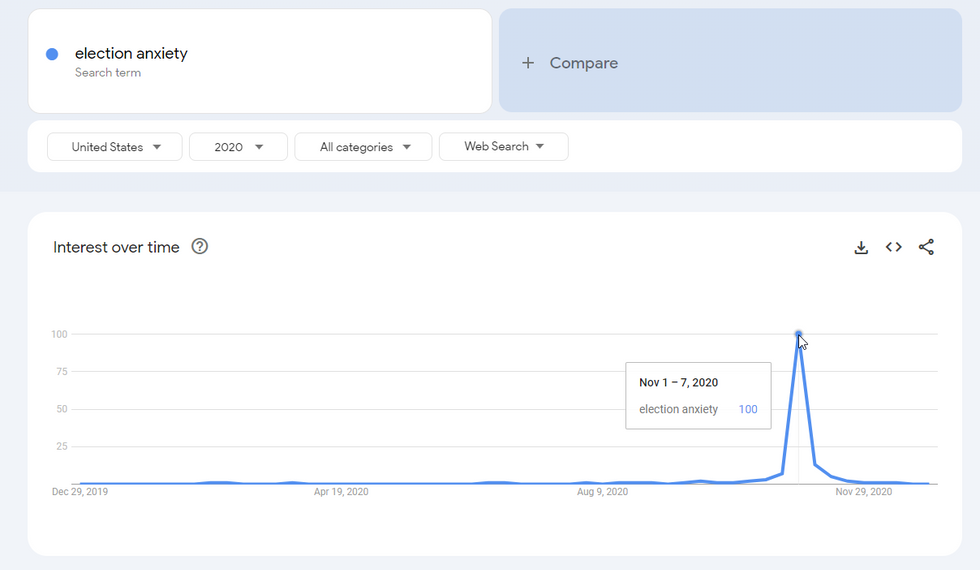
The implications of rising election anxiety in 2024
There’s a question we have to answer still: Why have self-reports of anxiety in 2024 already been higher than on Election Day in 2020?
Anxiety over uncertainty
One of the key drivers of anxiety in 2024 has been the overwhelming uncertainty surrounding the election. Biden’s decision to withdraw from the race, the assassination attempts on former President Donald Trump and a series of contentious Supreme Court rulings all contributed to a climate of unpredictability during the summer. Now, at the beginning of autumn, the election is just as contentious.
Voters feel increasingly unsure about the future, which has intensified stress and anxiety across the electorate.
Media amplification of anxiety
In 2024, the media — especially social media — has shifted from simply reporting events to actively heightening public anxiety. News outlets and platforms constantly spotlight worst-case scenarios as a way to increase their viewership, especially the prospect of crises, and the high stakes of the election. This unrelenting flow of anxiety-driven content keeps the public in a state of heightened alert, fostering a widespread sense of fear and unease.
Personal stakes and fear of consequences
Compared to 2020, many voters in 2024 perceive the personal stakes as even higher. Concerns about potential shifts in health care, civil rights and economic stability are driving a more intense, personal form of anxiety among voters.
Generational anxiety and social pressure
There has been a noticeable increase in anxiety among younger voters, particularly those aged 18 to 29, who report the highest levels of stress. This trend may be linked to the combined pressures of social media, economic instability and concerns over climate change.
The growing openness around mental health discussions has also led to more individuals self-reporting anxiety, contributing to the higher observed levels.
Political fatigue and anxiety
Years of political conflict have left many voters feeling politically fatigued, with their weariness extending beyond physical exhaustion to emotional and psychological stress. This fatigue is now manifesting as anxiety about the political process itself. Constant elections, scandals and crises may leave voters feeling overwhelmed and helpless, further intensifying their anxiety.
The 2024 election has become a focal point for national anxiety, driven by uncertainty, media amplification, personal stakes, generational shifts and political fatigue. This anxiety is not simply a byproduct of polarization; it has become a defining issue that mirrors the current state of American democracy. As the November election approaches, addressing this anxiety will be critical for fostering political engagement and protecting the mental well-being of the electorate.
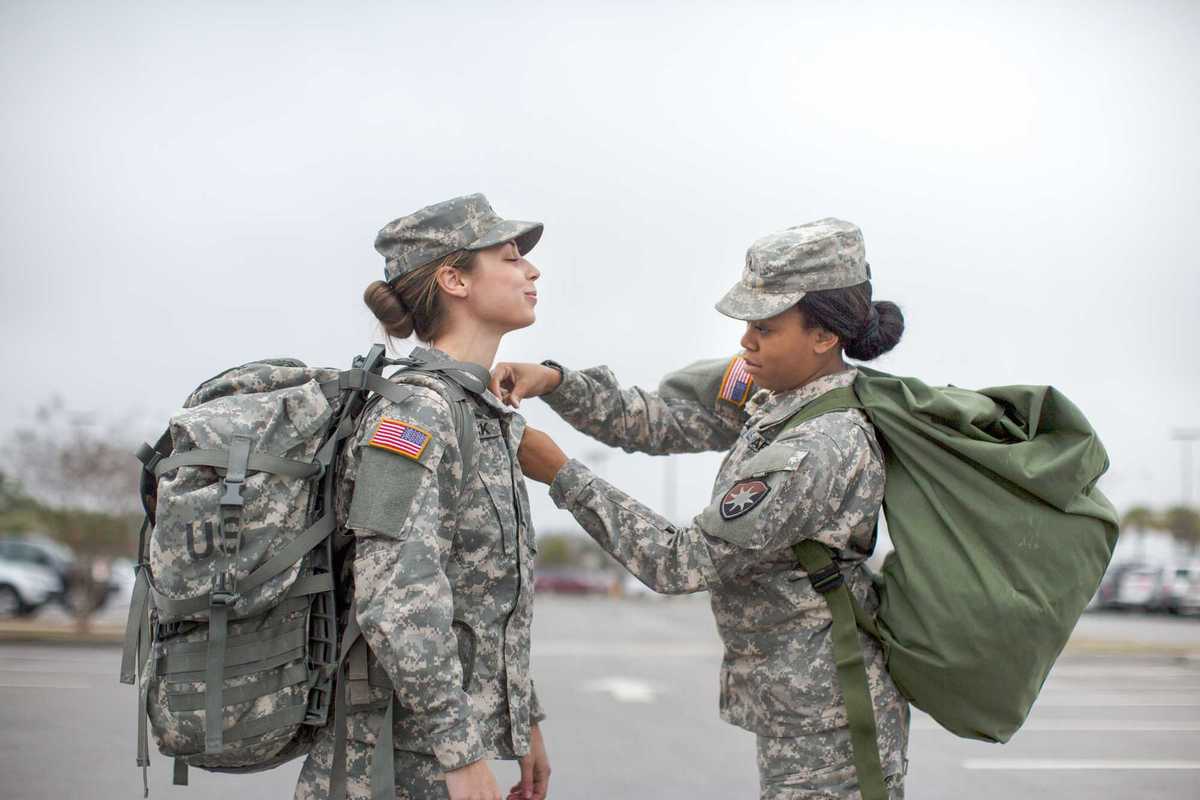


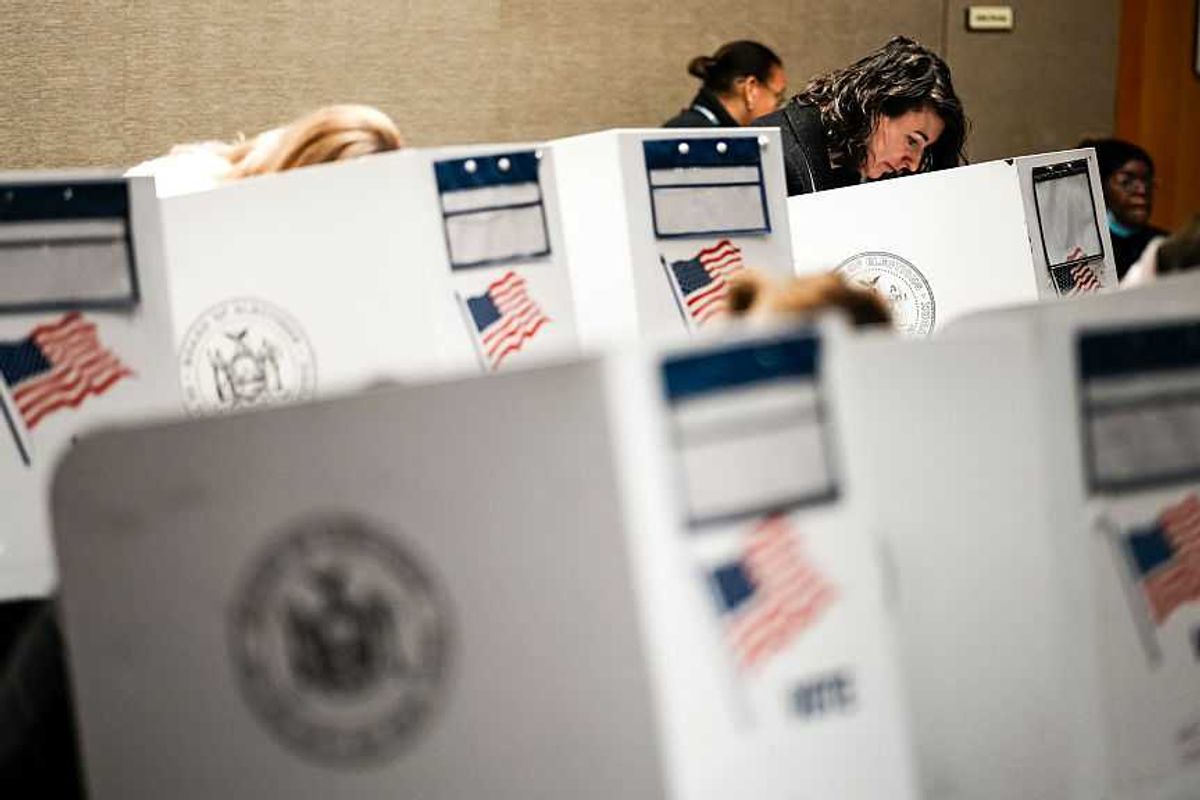

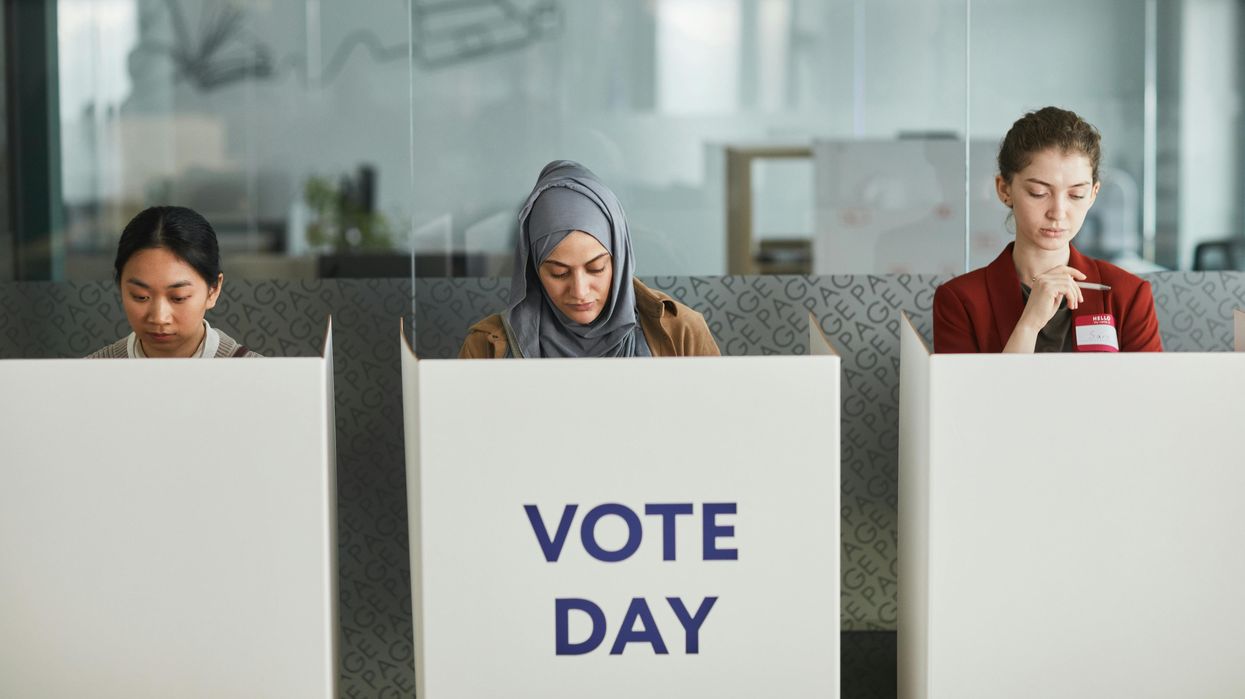

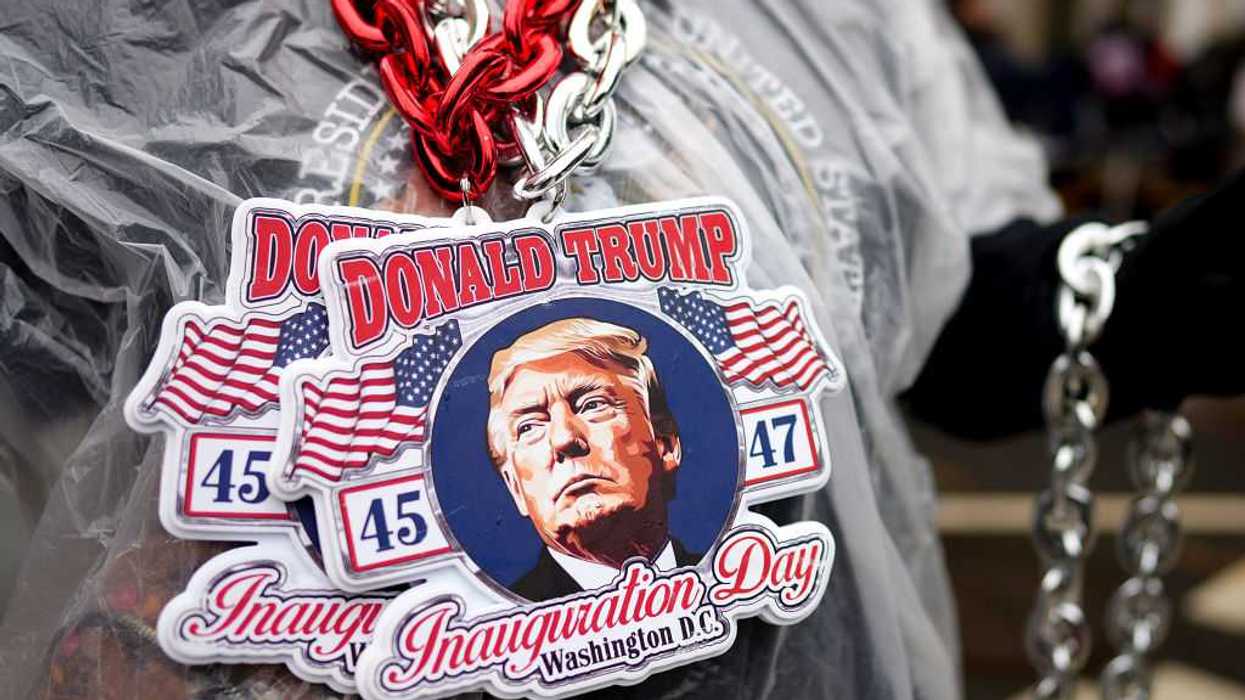
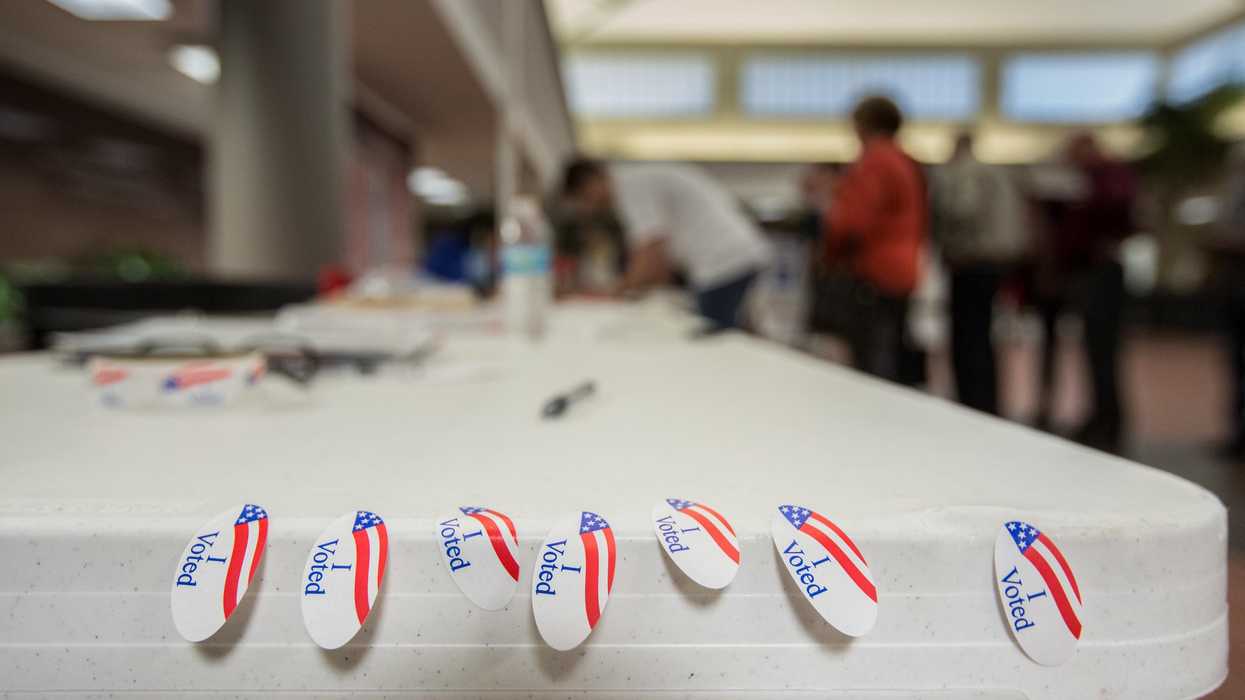











 From left to right: Gabriel Cardona-Fox, Bud Branch, Joe Concienne
From left to right: Gabriel Cardona-Fox, Bud Branch, Joe Concienne 